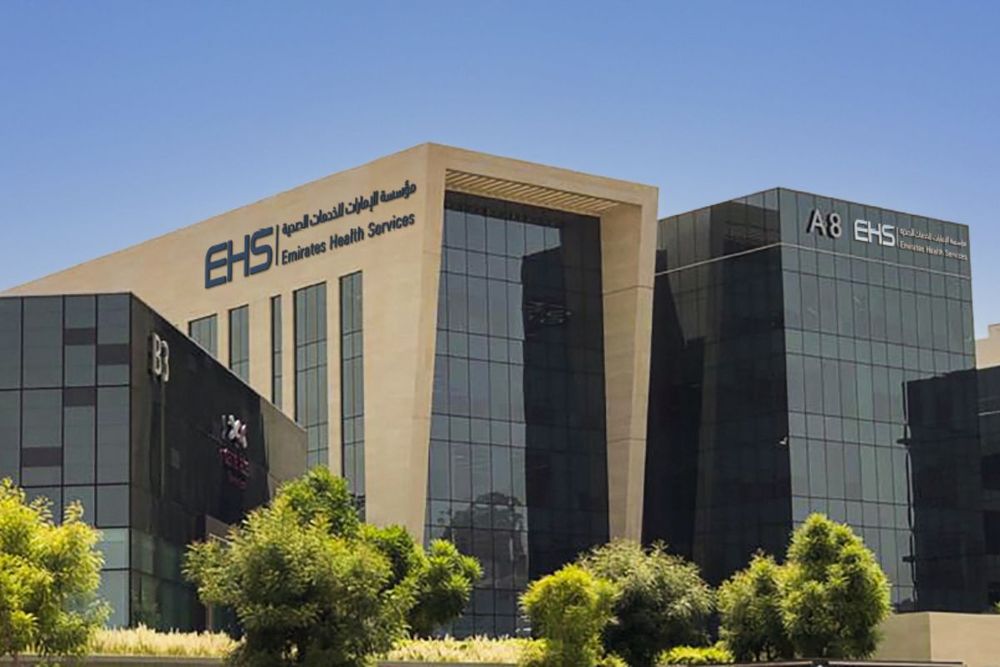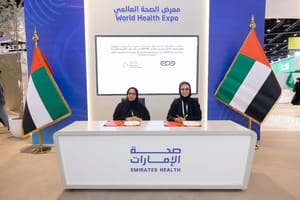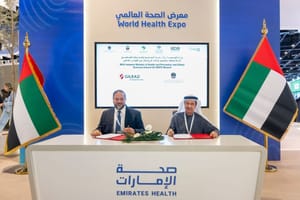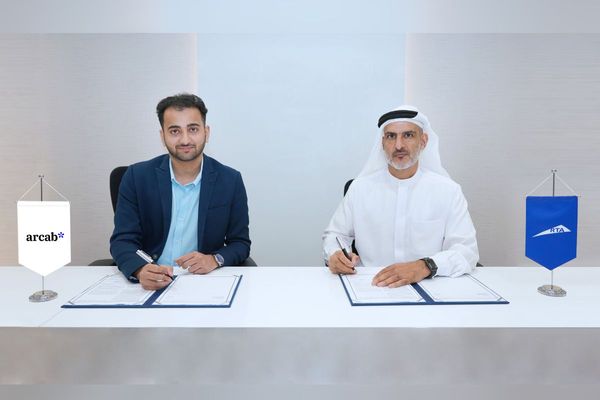Emirates Health Services (EHS) has launched the Automatic Patient Transfer service via its Smart Nutrition Services system, which has been implemented across all of its facilities.
The service is the first of its kind in the Middle East and is one of four projects set to be delivered by the end of the year.
The EHS announced the service at a press conference held today in its headquarters, and attended by Latifa Mohammed Rashid, Director of EHS’ Health Support Services Department, along with numerous health and academic institutions and notable media professionals and social media influencers.
Dr Abdullah Al Naqbi, Acting Executive Director of the Supportive Health Services Sector at EHS, asserted,
"Emirates Health Services is the first health authority in the Middle East to advance and automate its smart nutrition services system, boost the efficiency of nutrition departments across all of its hospitals and primary healthcare centres, and transition towards a digital system that provides the target groups with healthy meals, in accordance with the highest international health and food safety standards, while taking into account each patient’s health requirements."
Latifa Rashid explained,
"Emirates Health Services is committed to a forward-looking plan that includes automating all of its services and ensuring their sustainable development by implementing international best practices and embracing advanced technologies, in line with the UAE Strategy 2071 and the EHS’ own aspirations and development plans for the next 50 years. We strive to ensure the efficiency and leadership of the UAE healthcare sector, help customers lead a healthy lifestyle and ensure their wellbeing, and finally, boost the UAE health sector’s regional and global competitiveness."
The new services consist of four projects, namely, Transfer of Malnourished Children Aged 5 to 19; Type 2 Diabetes; Tube Feeding for Patients, and finally, Tracking Children’s Growth within Normal Weights and Automatic Transfer for Children to Health Centres. The projects target malnutrition, adult patients, overweight and obese patients, and pre-diabetic patients, as well as heart disease, blood pressure and malnutrition in the elderly.
The Transfer of Malnourished Children Aged 5 to 19 project helps children maintain a normal weight, reduce the prevalence of chronic diseases and malnutrition among them, enhance their quality of life and ensure sustainability by cutting costs involved with treating these conditions. It also seeks to ensure the health and safety of future generations, which boosts productivity for all community members and promotes happiness.
The project serves to automatically transfer target groups suffering from malnutrition and nutrition-related conditions (excess weight, obesity, wasting, stunting, thinness) from hospitals to a nutrition clinic, using the electronic system, ML, to provide them with nutritional care and intervention. The project excludes children with normal weights and children with special needs.
Meanwhile, the Type 2 Diabetes project aims to reduce the length of hospital stays for patients; delay complications related to diabetes, which, in turn, reduces costs for treatment, nursing and medication; improve patients’ quality of life by helping them maintain normal blood sugar levels and work towards a healthy weight; and finally, prevent complications related to diseases.
For its part, the Tube Feeding project automatically refers patients who are dependent on tube feeding to nutritionists to conduct a nutritional assessment, identify cases of malnourishment, and improve their nutrition, body weight, and mass. It also helps reduce complications from chronic diseases and improves patients’ ability to consume food through their mouths.
Lastly, the Tracking Children’s Growth within Normal Weights and Automatic Transfer for Children to Health Centres aims to establish a system to follow up on children’s growth and ensure they maintain a normal weight for healthy children. It targets children who are admitted to health centres, automatically transferring them using the electronic programme, ML, as per the criteria determined by the Nutrition Department. The objective is to provide nutritional care and intervention for children, as per protocols and guidelines approved by the department.
News Source: Emirates News Agency









